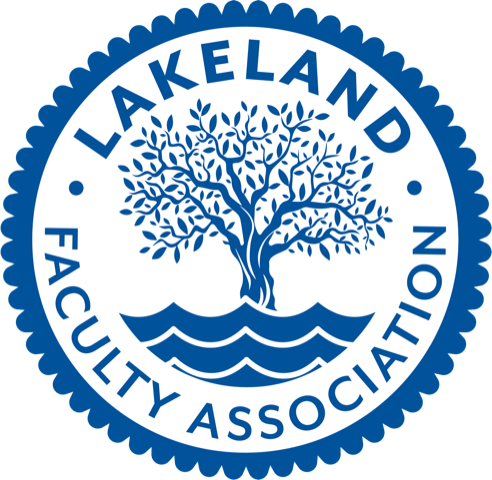Home » 2022
Yearly Archives: 2022
Lakeland Faculty Love What We Do, and We’re Damn Good at It
LFA President Tobin F. Terry’s remarks at the November 3, 2022 Lakeland Board of Trustees Meeting, delivered with the hope of helping the trustees understand what it means to be an educator at Lakeland. Dr. Beverage, Chairperson Vitaz, and Board of Trustees, I’m Tobin Terry, President of the LFA. We have 124 full-time faculty who […]
Let Us Show You What Diversity, Equity, and Inclusion Mean at Lakeland
LFA President Tobin F. Terry’s remarks at October 3, 2022 Lakeland Board of Trustees Meeting regarding recent board conversations and votes relating to the terms “diversity,” “equity,” and “inclusion.” Chairperson Vitaz, Board of Trustees, and President Beverage, I’m Tobin Terry, President of the Lakeland Faculty Association. I thank trustee Kessler for her comments at the end […]
Keep Political Games out of Lakeland
LFA President Tobin F. Terry’s remarks delivered at the September 29, 2022 Lakeland Board of Trustees meeting regarding the approved motion from the September 1, 2022 meeting to form a trustee-only committee to review the words “diversity,” “equity,” and “inclusion” as they appear in Lakeland policies and documents. Dr. Beverage, Chairperson Vitaz, and Board of […]
Diversity, Equity, and Inclusion are Lakeland’s Legacy
LFA President Tobin F. Terry’s remarks regarding the motion to remove the words equity and inclusion/inclusivity from the Lakeland Community College Strategic Plan at the September 1, 2022 Lakeland Board of Trustees Meeting Dr. Beverage, Chairperson Pro Tem Frager, and Board of Trustees: Thank you for the opportunity to address you today regarding item 8A of the agenda. […]
